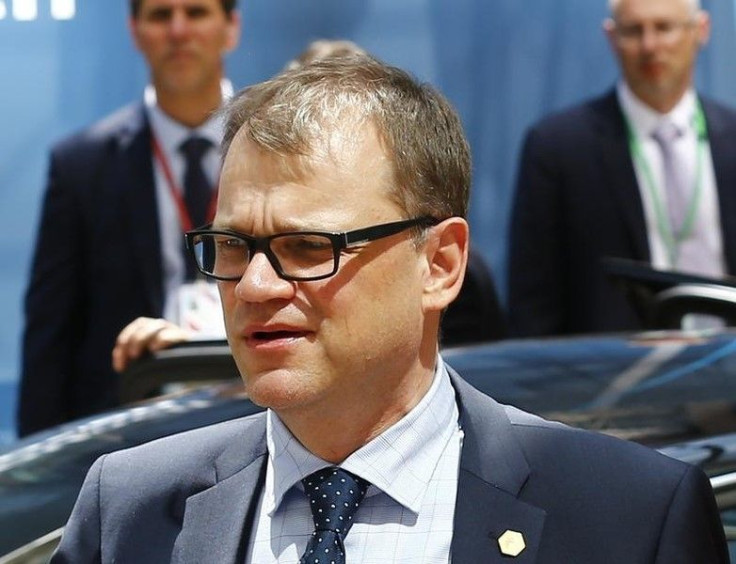Finnish Government Avoids Break-Up, Reaches Reform Deal

HELSINKI (Reuters) - Finland's center-right government early on Saturday struck a deal over cutting costs in the recession hit country's healthcare system, avoiding the coalition's break-up but raising questions over its future ability to pass painful reforms.
Prime Minister Juha Sipila, a former telecoms executive, had in a surprise statement on Thursday threatened to break up his government after only five months in power, in case it could not reach agreement on the reform by Friday.
The row is the latest manifestation of the difficulties to cut spending and push through major reforms in euro zone states.
It also highlights the challenges in the Nordic country that has been hit by string of problems, such as the decline of Nokia's phone business and recession in neighboring Russia, and which is seen growing slower in 2015 and 2016 than any other EU country, excluding Greece.
Sipila warned on the campaign trail that Finland could be the next Greece. Now as prime minister, he has struggled to step up reforms in a squabbling three party coalition representing conservative rural voters, urban technocrats and anti-immigrant populists.
"This episode weakens confidence for the government's decision-making ability. The impression is that the coalition partners have had major tensions," said Pasi Kuoppamaki, economist at Danske Bank.
Overhauling healthcare, billed as Finland's most important reform of the decade, is a longstanding problem for politicians.
The reform is due to curb future costs by 3 billion euros amid ageing population, making it a major part of the government's plan to save 10 billion euros ($11 billion) to balance public finances in the long term.
For Sipila's Centre Party, which has agrarian roots, the reform is a top agenda as the party favors the idea that people in the countryside should have more say on services.
Co-ruling National Coalition party, led by finance minister Alexander Stubb, in turn supported centralized power for the biggest cities and opening business prospects for private players.
The government said in its early hour statement that as a compromise, it had agreed to divide the country into 18 autonomy regions and 15 healthcare regions, along with a legislation that allows citizen to choose over between public and private service providers.
The government said it would present the deal in more detail on Monday.
CEO STYLE
By threating to break up the government, Sipila had used a rare tactic in the country with tradition of consensus-seeking coalitions.
"We must get all the big decisions ready by Christmas, so that we have enough time on implementing them. As there was no agreement at a time of a deadline, I must ask myself, is this government capable of making tough decisions," Sipila had said on Thursday.
During his tenure, he has also clashed with trade unions as he tried to negotiate an "internal devaluation" deal in a bid to lower unit labor costs and boost export competitiveness. He then announced cuts to holidays, sickness pay and extra pay, and unions responded with the country's biggest demonstration since 1991 and a wide strike.
Finally, the government backtracked and canceled some of the planned measures.
"Sipila is rather impatient, he isn't used to long negotiations with the unions, for example, which is the custom in Finnish politics. He leads with a company executive style, moving ahead quickly," said Ilkka Ruostetsaari, professor of politics at Tampere University.
Once known for prudent fiscal policies and innovation, Finland's economy is now mired in a three-year-old recession, and its population of 5.5 million is ageing fast.
Its exports have dwindled after Nokia's failure to compete with smartphones such as Apple's iPhone, while its paper industry also lost business to new digital devices.
Slowdown in Russia, a key trade partner, and the economic sanctions due to the Ukraine crisis have also hurt: Finnish exports to Russia dropped 32 percent in January-August from a year earlier.
Finland's rigid labor market system has also played a role as costs kept climbing despite a poor economic performance after the global financial crisis. According to the government, Finland has fallen 15 percent behind its main rivals Germany and Sweden in cost competitiveness.
During the euro zone debt crisis, Finland took a hard line against euro zone bailouts. Recently, it has lost triple-A ratings as it lags its Nordic non-euro neighbors Sweden and Norway.
© Copyright Thomson Reuters 2024. All rights reserved.











